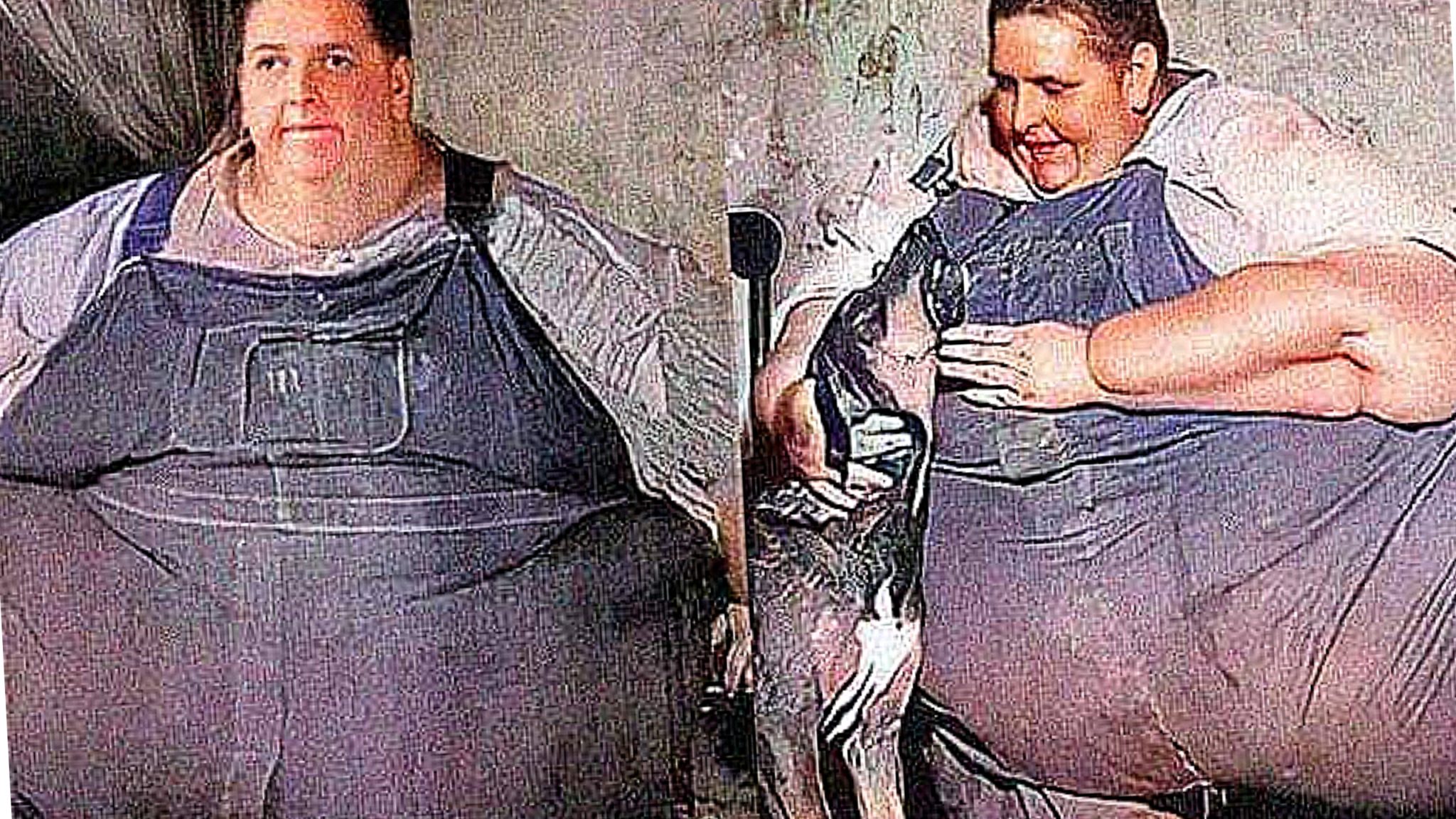Understanding Extreme Obesity: A Look At "The Fattest Person In The World"
The phrase "the fattest person in the world" often evokes a mix of curiosity, shock, and sometimes, judgment. It's a title that, while attention-grabbing, points to a profound and often tragic human condition: extreme obesity. This isn't merely about being overweight; it's about living with a body weight that severely impairs health, mobility, and quality of life, pushing the limits of human physiology. Far from being a simple matter of overeating, extreme obesity is a complex health crisis influenced by a myriad of genetic, environmental, psychological, and metabolic factors.
Please note: The provided "Data Kalimat" for this article was entirely related to Spokane weather forecasts and cryptocurrency (Ripple XRP) guides. As such, it bore no relevance to the topic of "the fattest person in the world" and could not be integrated into the content below. This article is therefore written based on general knowledge and research regarding extreme obesity.
Defining Extreme Obesity and Its Challenges
Extreme obesity, also known as morbid obesity, is typically defined by a Body Mass Index (BMI) of 40 or higher, or a BMI of 35 or higher with co-occurring severe health conditions. For individuals who hold the unofficial title of "the fattest person," their weight often soars into the hundreds of kilograms, sometimes exceeding half a ton. At such extreme weights, the human body is under immense strain, leading to a cascade of severe health problems:
- Cardiovascular Diseases: The heart has to work much harder to pump blood through an enlarged body, leading to high blood pressure, heart failure, and increased risk of strokes.
- Type 2 Diabetes: Extreme weight gain often leads to insulin resistance, where the body's cells don't respond effectively to insulin, causing high blood sugar levels.
- Joint and Mobility Issues: The sheer weight puts enormous pressure on joints, particularly knees, hips, and the spine, leading to severe pain, arthritis, and often, complete immobility.
- Respiratory Problems: Excess weight around the chest and abdomen can restrict lung function, leading to conditions like sleep apnea (where breathing repeatedly stops and starts during sleep) and chronic shortness of breath.
- Skin Infections and Ulcers: Skin folds can trap moisture, leading to severe infections, and pressure ulcers can develop due to prolonged immobility.
- Mental Health Impact: The social stigma, physical limitations, and chronic pain associated with extreme obesity often lead to severe depression, anxiety, and social isolation.
Beyond medical complications, daily life becomes an insurmountable challenge. Simple tasks like bathing, dressing, or even moving from a bed to a chair require significant effort or assistance, often rendering individuals completely dependent on caregivers.
Historical Figures and Their Journeys
The title of "the fattest person in the world" has changed hands over the decades, often posthumously. These individuals' stories are rarely triumphant; instead, they are poignant narratives of struggle, medical challenges, and often, tragic ends. Some of the most widely recognized cases include:
Jon Brower Minnoch (1941-1983)
Hailing from Bainbridge Island, Washington, Jon Brower Minnoch is widely considered the heaviest human ever recorded. At his peak, he was estimated to weigh around 1,400 pounds (635 kg). His story highlights the extreme medical interventions required, as he underwent a drastic weight loss program, losing over 900 pounds, only to regain a significant portion of it later. His life was a testament to the immense difficulty of sustaining weight loss at such extreme levels.
Manuel Uribe (1965-2014)
A Mexican man, Manuel Uribe, gained international attention when he was certified by Guinness World Records as the "world's heaviest living man" in 2006, weighing approximately 1,316 pounds (597 kg). His journey involved a concerted effort to lose weight, and he managed to shed hundreds of pounds, though he remained largely bedridden for years. His story brought awareness to the global obesity crisis and the specific challenges faced by individuals at the extreme end of the spectrum.
Carol Yager (1960-1994)
An American woman from Michigan, Carol Yager, was reported to be one of the heaviest women in history, though her peak weight is disputed, with estimates ranging from 1,100 to 1,600 pounds (500 to 727 kg). Her case, like many others, underscored the complex interplay of psychological factors, food addiction, and the devastating physical consequences of extreme weight.
These stories, while unique, share common threads: a battle against a relentless condition, the need for extensive medical and personal support, and the immense physical and emotional toll it takes.
The Complexities Behind Extreme Weight Gain
It's a common misconception that extreme obesity is simply a result of a lack of willpower or excessive eating. While caloric intake certainly plays a role, the underlying causes are far more intricate:
- Genetic Predisposition: Research shows that genetics can significantly influence an individual's susceptibility to weight gain, affecting metabolism, appetite regulation, and fat storage.
- Metabolic and Hormonal Disorders: Conditions like hypothyroidism, Cushing's syndrome, or polycystic ovary syndrome (PCOS) can contribute to weight gain. More profoundly, extreme obesity itself can disrupt hormonal balance, creating a vicious cycle.
- Psychological Factors: Emotional eating, trauma, depression, anxiety, and other mental health issues can lead individuals to use food as a coping mechanism, spiraling into unhealthy eating patterns.
- Environmental and Socio-economic Factors: Access to affordable, healthy food, safe spaces for physical activity, and education about nutrition can all play a role. A diet rich in processed, high-calorie, low-nutrient foods is often more accessible and cheaper.
- Medication Side Effects: Certain medications, including some antidepressants, steroids, and antipsychotics, can cause significant weight gain.
- Sedentary Lifestyle: While not the sole cause, a lack of physical activity exacerbates weight gain, especially when combined with other factors. For individuals with extreme obesity, mobility issues often precede, or are exacerbated by, their weight, making exercise incredibly difficult.
The journey to extreme obesity is often a slow, compounding process, where each pound gained makes it harder to move, harder to exercise, and harder to escape the cycle.
Pathways to Recovery and Support
For individuals struggling with extreme obesity, the path to recovery is arduous and requires a comprehensive, multidisciplinary approach. It's not just about dieting; it's about a complete overhaul of lifestyle, mindset, and often, medical intervention.
Medical Interventions:
- Bariatric Surgery: Procedures like gastric bypass, sleeve gastrectomy, or adjustable gastric banding are often considered for individuals with morbid obesity when other methods have failed. These surgeries alter the digestive system to limit food intake and/or nutrient absorption. While effective for significant weight loss, they are not a magic bullet and require lifelong commitment to dietary changes and follow-up care.
- Pharmacological Treatments: Certain medications can aid in weight loss by suppressing appetite or reducing fat absorption, but they are typically used as an adjunct to lifestyle changes and are not suitable for all cases.
Multidisciplinary Support:
Successful long-term weight management for extreme obesity involves a team of specialists:
- Nutritionists/Dietitians: To develop personalized meal plans and educate on healthy eating habits.
- Psychologists/Therapists: To address underlying emotional issues, develop coping mechanisms, and manage body image concerns.
- Physical Therapists: To improve mobility, strength, and design safe exercise routines.
- Endocrinologists: To manage hormonal imbalances and metabolic conditions.
- Support Groups: Providing a community of individuals facing similar challenges can offer invaluable emotional support and practical advice.
The road to recovery is long, fraught with challenges, and requires immense dedication from the individual, along with unwavering support from family, friends, and medical professionals.
Conclusion
The concept of "the fattest person in the world" is a stark reminder of the global obesity epidemic and the severe consequences it can have on an individual's life. It's a title that represents not a feat, but a profound health crisis, characterized by immense physical and psychological suffering. Understanding extreme obesity goes beyond mere curiosity; it requires empathy, an appreciation for the complex interplay of factors contributing to the condition, and a recognition of the monumental effort required for recovery. These individuals are not defined by their weight alone, but by their human struggle against a challenging and often life-threatening condition. By fostering understanding and supporting comprehensive care, we can shift the narrative from sensationalism to compassion and effective intervention for those battling extreme obesity.

Fattest Man Alive 2024 Contestants - Daphne Merola

Fattest People In The World: Top 10 Heaviest - Bscholarly

Fattest People In The World: Top 10 Heaviest - Bscholarly